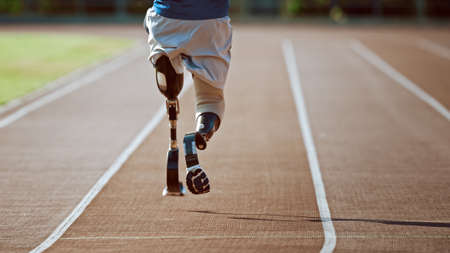Introduction to Adaptive Daily Living Aids in the UK
Adaptive daily living aids are transforming the way older adults and individuals with disabilities maintain their independence in the UK. These innovative tools, ranging from simple kitchen gadgets to advanced smart home systems, are designed to empower people to live more comfortably and safely within their own homes. In a society where ageing populations and accessibility are increasingly important topics, adaptive aids play a vital role in reducing reliance on carers and supporting dignity in day-to-day life. The UK’s commitment to inclusivity and technological advancement means that new solutions continue to emerge, tailored to British lifestyles and needs. As we look ahead to 2025, it’s essential to understand how these technologies not only enhance quality of life but also help foster a sense of autonomy for everyone, regardless of ability.
2. Smart Home Assistive Technologies
As we look towards 2025, the UK is witnessing remarkable progress in smart home assistive technologies designed to support independent and dignified daily living. These innovations are transforming houses into safer, more accessible sanctuaries for people with a range of needs, from elderly individuals to those living with disabilities.
Voice-Activated Systems
Voice control has become increasingly refined, offering hands-free operation for a multitude of household devices. British homes are now embracing voice assistants that not only manage entertainment but also handle practical tasks such as setting medication reminders or activating emergency contacts. This technology, which understands regional accents and colloquialisms, ensures users feel truly at home.
Automated Lighting and Accessibility
Lighting systems have seen notable advances, with adaptive solutions that automatically adjust brightness based on the time of day or user preferences. For those with limited mobility or visual impairments, these systems can be controlled via smartphones or simple voice commands, reducing the risk of falls and creating a calming environment.
| Feature | Benefit | Example Brands (UK) |
|---|---|---|
| Voice-activated controls | Hands-free device management | Amazon Alexa, Google Nest |
| Automated lighting | Enhanced safety and comfort | Philips Hue, Hive Active Light |
| Smart climate control | Tailored temperature settings for individual needs | Nest Thermostat, tado° |
Climate Control Tailored for Accessibility
The latest climate control solutions allow for bespoke temperature settings throughout the home. With intuitive interfaces—ranging from tactile switches to smartphone apps—residents can easily create comfortable environments without needing to physically reach thermostats or radiators. These systems are particularly helpful during the UKs changeable weather, ensuring comfort and health all year round.
The integration of these smart technologies is not just about convenience—it’s about fostering independence and peace of mind. As adaptive daily living aids continue to evolve in the UK, homes are becoming more responsive to each individual’s unique requirements, helping everyone feel secure and empowered in their own space.

3. Innovative Mobility Solutions
As we look towards 2025, the UK is embracing a new generation of mobility aids designed to empower individuals and foster greater independence. The latest powered wheelchairs are at the forefront, boasting intuitive controls, enhanced battery life, and advanced safety features such as obstacle detection and terrain adaptation. These state-of-the-art chairs are crafted with comfort and customisation in mind, allowing users to navigate both city pavements and countryside paths with confidence.
Lightweight walkers have also seen remarkable advancements. Modern designs use robust yet featherlight materials like carbon fibre, making them much easier to manoeuvre without sacrificing stability. Foldable frames and built-in seats mean these walkers fit seamlessly into everyday British life—whether popping down to the local shops or enjoying a stroll in the park.
Ergonomic canes have been thoughtfully reimagined too. New models feature adjustable grips, shock-absorbing tips, and even smart sensors that track activity levels or alert loved ones in case of a fall. All these innovations reflect a gentle shift towards not just supporting movement, but actively enhancing wellbeing, safety, and autonomy for people across the UK.
4. Wearable Health and Safety Devices
Wearable technology is truly transforming the landscape of adaptive daily living aids across the UK, offering both reassurance and greater independence for those who need a little extra support. As we move into 2025, an exciting wave of wearable health and safety devices is making everyday life safer and more connected, catering to the unique needs of older adults and people living with disabilities.
Leading Innovations in Wearable Technology
The latest generation of wearables goes far beyond simple step counters. In the UK market, several cutting-edge devices are now available that provide real-time health monitoring, fall detection, and instant emergency alerts. These devices blend seamlessly into daily routines, often designed as discreet wristbands, pendants or smartwatches, making them comfortable and unobtrusive to wear.
Key Features and Benefits at a Glance
| Device Type | Primary Function | Notable UK Brands | User Benefits |
|---|---|---|---|
| Fall Detection Bands | Senses sudden movement or impact | Careline365, Lifeline24 | Automatic alerts to carers or emergency services if a fall occurs |
| Smart Medical Watches | Tracks heart rate, oxygen levels, sleep patterns | Apple Watch (with NHS integration), Withings ScanWatch | Continuous health monitoring; early warning for medical issues |
| Pendant Alarms | One-touch emergency call feature | Tunstall, Age UK Personal Alarm | Immediate assistance available at home or when out and about |
| GPS Location Trackers | Monitors wearer’s location outdoors | Pebbell, Mindme Locate | Peace of mind for families of those prone to wandering (e.g., dementia) |
The Growing Importance of Integration with NHS Services
A particularly noteworthy trend in the UK is the integration of these wearables with NHS digital services. Some devices can now securely share vital data directly with healthcare professionals, enabling proactive care and reducing unnecessary hospital visits. This seamless connectivity ensures that users receive timely interventions tailored to their health needs while maintaining their independence at home.
Culturally Sensitive Design for UK Users
Manufacturers are increasingly mindful of British lifestyles and preferences. Many new devices offer customisable alert settings—silent vibration for privacy or spoken messages for reassurance—and are compatible with local emergency response systems. This thoughtful approach not only enhances user comfort but also ensures families feel confident that their loved ones have access to help whenever needed.
5. Accessible Kitchen and Bath Innovations
Staying safe and independent in the kitchen and bathroom is an essential part of daily life, especially for those with mobility or dexterity challenges. In 2025, the UK is witnessing a surge of adaptive technology that makes these spaces more inclusive than ever before.
Adaptive Kitchen Gadgets
The latest wave of kitchen gadgets offers thoughtful solutions to common barriers. One-handed chopping boards, ergonomic jar openers, and talking kitchen scales are just a few examples now widely available on the UK market. These tools are crafted to help users manage meal preparation confidently, even with limited grip or hand strength. Smart kettles with tip-and-pour features, as well as induction hobs that remain cool to the touch, are also increasingly popular for their safety benefits.
Easy-Use Taps and Fixtures
Modern easy-use taps fitted with lever handles or touchless sensors are being installed in more British homes, providing effortless operation for people with arthritis or restricted movement. Mixer taps that maintain a consistent water temperature not only add convenience but also reduce the risk of accidental burns. For those who prefer traditional design, many manufacturers now offer classic tap styles adapted with contemporary accessibility features.
Anti-Scald Devices and Bathroom Technology
Preventing scalds is a top priority in accessible bathrooms. Anti-scald devices—now standard in many new UK builds—automatically regulate water temperature to prevent sudden changes that could cause injury. Walk-in showers equipped with thermostatic controls and non-slip surfaces provide both comfort and security. Meanwhile, advanced bath lifts and height-adjustable basins ensure everyone can enjoy personal care routines with dignity.
Culinary and Bathroom Tech for Independence
Voice-controlled appliances and smart home integrations are transforming daily living for many across the UK. From ovens that respond to spoken commands to bathroom lights triggered by motion sensors, these technologies foster greater autonomy while minimising physical strain. Such innovations allow individuals to continue enjoying their favourite activities—and maintain their cherished routines—while staying safe at home.
A Gentle Reminder
If you’re considering upgrading your kitchen or bathroom with adaptive technology, it’s worth consulting an occupational therapist or local authority advisor. Many councils across the UK offer grants or guidance for home adaptations, ensuring that everyone has access to the latest advancements supporting comfort and independence.
Tech for Social Connection and Wellbeing
As we embrace 2025, staying connected is just as important as physical support when it comes to adaptive daily living aids in the UK. The latest technological innovations are thoughtfully designed to nurture social interaction, promote mental health, and support holistic wellbeing—ensuring no one feels left behind.
Smart Devices Bridging Distances
New-generation smart speakers and video calling hubs now come with intuitive interfaces tailored for people of all abilities. Voice-activated features, large tactile buttons, and clear visuals make it easier than ever for users to reach out to family, friends, or carers, even if dexterity or memory is a concern. These tools help foster meaningful connections, reducing feelings of isolation that can sometimes accompany limited mobility or changing health needs.
Apps Supporting Mental Wellness
Mental health apps have evolved with input from UK clinicians and user feedback. Many now offer guided mindfulness sessions, gentle reminders to check in on mood, and even localised helplines for immediate support. Some connect directly with NHS services, making it simpler to access professional help or community resources from the comfort of home.
Holistic Wellbeing Platforms
Innovative platforms are also integrating physical activity trackers with social features, allowing users to join virtual walking groups or group exercise classes tailored for varying abilities. In addition, new memory-aid apps encourage reminiscence therapy through interactive storytelling with loved ones—a gentle way to boost cognitive engagement while strengthening bonds.
Keeping Carers in the Loop
For families and carers, secure messaging and shared calendars help coordinate care routines discreetly and efficiently. Real-time updates on wellbeing metrics mean loved ones can provide timely encouragement or assistance without intruding on privacy. All these advances are crafted with respect for British sensibilities around independence and dignity.
With these emerging technologies leading the way, adaptive daily living aids in the UK are not only addressing practical challenges but also nurturing the social and emotional fabric so vital to a life well-lived.
7. Future Directions and Considerations in the UK
As we look towards 2025, the landscape of adaptive daily living aids in the UK is evolving rapidly, shaped by both technological breakthroughs and a growing understanding of what truly supports independent living.
Embracing Emerging Trends
Innovations such as AI-powered home assistants, voice-activated devices, and smart wearable technologies are becoming more tailored to individual needs. The integration of Internet of Things (IoT) within the home environment is making it possible for users to control lighting, heating, and even kitchen appliances with simple voice commands or intuitive mobile apps. For families and carers, these trends signal a move towards greater autonomy and dignity for loved ones while also offering peace of mind through remote monitoring features.
Adhering to Accessibility Standards
It is crucial for those choosing adaptive technology to ensure that products comply with the latest British accessibility standards and regulations. Look for devices that meet BS 8878 web accessibility guidelines or have been tested by UK charities specialising in disability support. Inclusive design—where products are created with input from users across a spectrum of abilities—should be a top consideration.
What to Consider When Choosing Technology
1. Personalisation
Select devices that can be tailored to the user’s unique preferences, routines, and mobility levels.
2. Ease of Use
Simplicity should always come first: intuitive interfaces, clear instructions, and reliable customer support make a world of difference.
3. Data Security & Privacy
With more devices connecting online, families must pay attention to how personal data is stored and shared. Choose trusted brands with transparent privacy policies.
4. Ongoing Support & Training
Access to training resources, helplines, and local support networks ensures that users can adapt confidently as their needs change.
Nurturing an Inclusive Future
Ultimately, the future of adaptive technology in the UK lies in collaboration—between innovators, healthcare professionals, carers, and most importantly, the individuals who use these aids every day. By staying informed about new developments and advocating for products that reflect real-world needs, we can help foster a culture where everyone has the tools to live life fully and independently.


